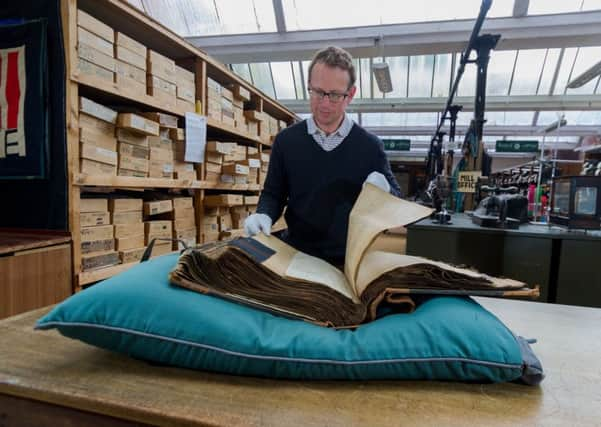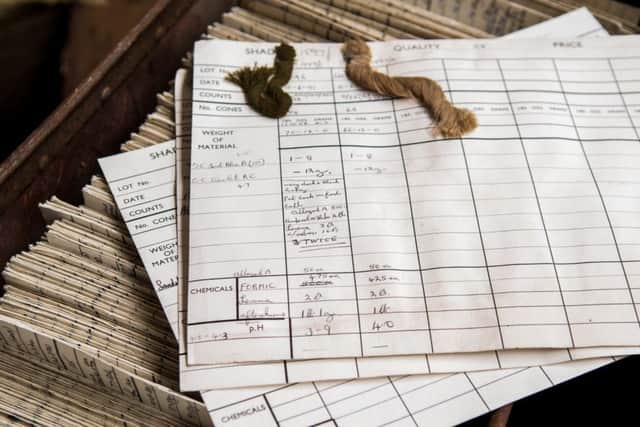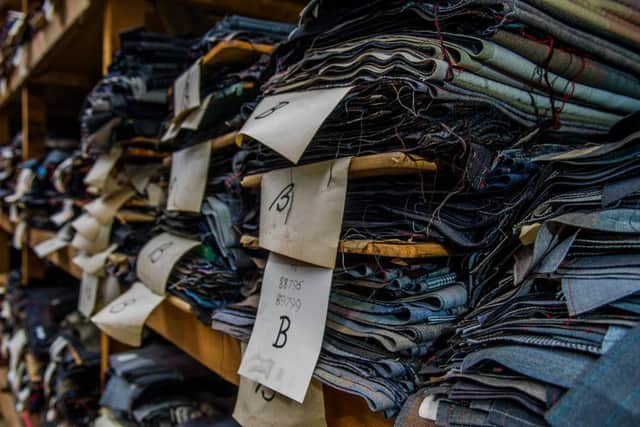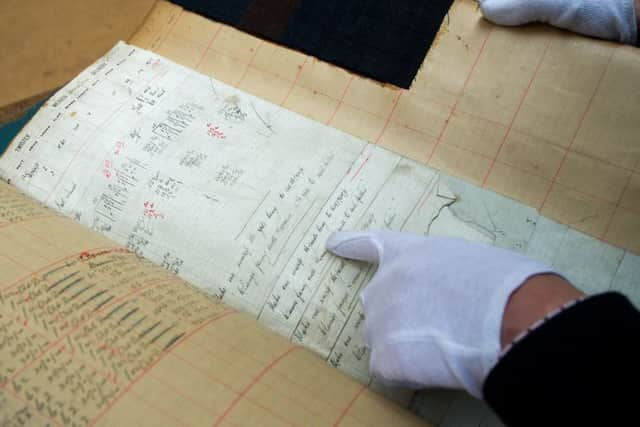'˜Significant' textile collection secured for the future


A new not-for-profit company has been set up to safeguard the textile archive at Sunny Bank Mills, at Farsley, between Leeds and Bradford, which contains a wealth of historic items, including over 60,000 lengths of fabric, 8,000 fabric designs, 5,000 wool dyeing recipe cards, weaving looms, photographs and a library of mill-related books.
The Mills, which were originally built in 1829, have been in the Gaunt family for six generations and are currently owned and managed by cousins John and William.
Advertisement
Hide AdAdvertisement
Hide AdThey established the archive two years after production ended in 2008, but have taken the step to form the new company, along with a board of trustees, to ensure it is safe even after they are gone.


John Gaunt said: “It is important to William and I that the archive has a secure future beyond our lifetimes, so we have taken the decision to create a new company to oversee the management, restoration, conservation, preservation, use and promotion of the archive at Sunny Bank Mills.
“This will facilitate and encourage public use and enjoyment of the archive; to provide educational activities and to facilitate and encourage creative arts activities inspired by the archive.
“To help make the archive sustainable, the new company will also be able to apply for funding for all these activities.”
Advertisement
Hide AdAdvertisement
Hide AdThe “substantial” archive is essentially the company records and the contents of all departments from 1829 until production ceased nine years ago. The archive, established in a 3,000 sq ft old warping shed, is overseen by curator Rachel Moaby, who has been charged with cataloguing, preserving and developing the archive.


The collection contains hundreds of leather-bound guard books holding cuttings of all the cloth made at Sunny Bank Mills.
These alone can offer a fascinating insight to the social history of Farsley, Ms Moaby said. Along with teams of volunteers at the Mills, she is currently researching the First World War and its connections to the Mills, based on one particular Guard book in the archive.
“Unlike the other Guard books in the collection, it is very different due to the pages and pages of orders of khaki,” she said. “The research, with the help of the fabulous volunteers at Sunny Bank Mills Archive, will help to build the story of khaki and the textile industry, but also focus on the people who made it and what life was really like in the town. Telling the stories of the ordinary and the extraordinary lives held together by the threads of cloth and khaki.”
Advertisement
Hide AdAdvertisement
Hide AdThe research aims to create a book and exhibition about the community during the War, and link with local schools so that children can connect with their local heritage.


The new company, Sunny Bank Mills Ltd, will be officially launched on Saturday, when the archive will be open as part of National Heritage Open Days. Mill tours will also run from Friday to Sunday this weekend hourly from 10am to 4pm.
The Archive is open on the first Wednesday of every month from 10am to 12pm.
Sunny Bank Mills has been in the Gaunt family since 1829, when it was developed by a group of clothiers.
Advertisement
Hide AdAdvertisement
Hide AdIt expanded throughout the 19th century, and by the break of the 20th century was one of Leeds premier spinners and weavers and had a reputation as one of the finest cloth producers in the world.


When it closed in 2008, after 180 years of production, cousins William and John Gaunt, were determined to see it remain both part of the community and a centre of employment.
The regeneration, which began in 2010, has been hailed by Historic England and it now houses 60 businesses, from engineers and textile artists to architects and a children’s play gym.